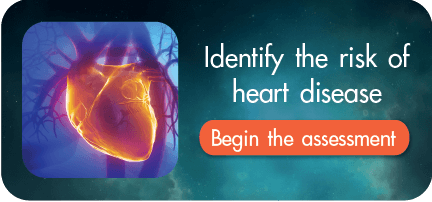
Do You Feel Breathless When You Exercise or Are You Suffering From Ischemic Heart Disease?

HIGHLIGHTS:
- A tightness in the chest combined with shooting pains in the jaw, shoulders and top of the arms – especially on the left-hand side of the body – are all symptoms related to exerting power and exercising that may be linked to a myocardial ischemia.
- If you experience pain and tightness in the chest in conjunction with palpitations, breathlessness, legs swelling or feeling faint, you should stop exercising immediately.
- Undergoing an exercise stress test (EST) can serve as an initial screening process for ischemic heart disease.
Do You Feel Breathless When You Exercise or Are You Suffering From Ischemic Heart Disease?
If someone exercises regularly, but suddenly experiences extreme fatigue, breathlessness and a pain in the left side of the chest, it could be the body’s warning of an impending myocardial ischemia.
What type of chest tightness is associated with a myocardial ischemia?
Myocardial ischemias tend to occur suddenly without warning. Patients may have a completely normal day. Once they start exercising that same evening they may experience a tightness in the chest, heart palpitations, extreme fatigue, legs swelling and faintness. The tightness usually occurs in the left-hand side of the chest and can travel down the left shoulder and arm, or the pain may travel to the sternum while not reaching the naval area. These symptoms mean that you should stop exercising immediately and seek urgent medical attention. A doctor needs to check your condition and determine which assessments are required thereafter.
If you suspect that you are suffering from ischemic heart disease, you can come in for ischemic heart disease screening ;
Warning signs of a myocardial ischemia
People who exercise regularly, as well as most athletes, will understand that feeling tired, out of breath and experiencing a tightness of the chest are completely normal occurrences when exercising strenuously or breaking a sweat. However, sometimes these symptoms could be warning signs of an impending myocardial ischemia.
Groups that should undergo screening for ischemic heart disease are as follows:
- People with a family history of heart disease, or those with a relative who died suddenly and without cause.
- People who are at risk of ischemic heart disease, such as diabetics, chronic kidney failure patients, those with high blood fat levels, with high blood pressure and smokers.
- Professional athletes, those who regularly undertake strenuous exercise and marathon runners.
- Special professions, such as pilot.
Although great progress has been achieved in the field of medical technology that makes the treatment of various conditions much simpler than before, looking after your own health is still considered the most important step in preventing illnesses and diseases.
Complete a risk assessment for genetic conditions at:
Related
articles

